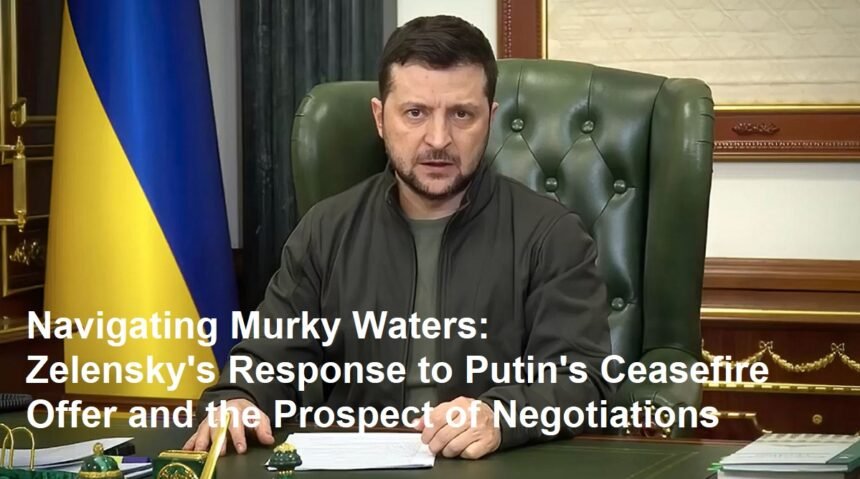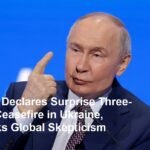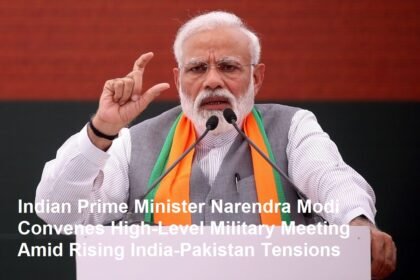On April 28th, 2025, the international community held its breath as Ukrainian President Volodymyr Zelensky addressed the nation following the announcement of a ceasefire by Russian President Vladimir Putin. In a statement that balanced cautious optimism with unwavering resolve, Zelensky expressed readiness to engage in negotiations, tentatively scheduled for the coming Monday. This development, however, arrives in a landscape saturated with mistrust and historical precedent, demanding a discerning analysis of the potential for genuine progress and the possible pitfalls ahead.
Putin’s announcement of a ceasefire, while ostensibly a gesture of de-escalation, is viewed with considerable skepticism by Western powers and Ukrainian officials alike. The timing of the offer, after a protracted period of military setbacks and mounting international pressure on Russia, inevitably raises questions about its sincerity. Is it a genuine attempt to achieve a peaceful resolution, or a calculated maneuver to consolidate gains, regroup forces, and buy time to re-strategize? Zelensky’s response, therefore, demonstrates a shrewd awareness of this ambiguity. While expressing willingness to negotiate, he subtly maintained a position of strength, underscoring the necessity of verifiable guarantees and concrete actions to demonstrate Russia’s commitment to peace.
The prospect of negotiations offers a glimmer of hope amidst the protracted conflict. For Ukraine, the potential benefits are self-evident: a cessation of hostilities, the preservation of its sovereignty, and the opportunity to rebuild its ravaged infrastructure. However, the stakes are incredibly high, and any negotiation must proceed with meticulous planning and unwavering adherence to core principles. Key concerns will undoubtedly revolve around territorial integrity, security guarantees, and accountability for war crimes. Ukraine cannot afford to compromise on these fundamental principles, lest it risk jeopardizing its future and rewarding aggression.
The involvement of international mediators is crucial to ensuring the integrity and fairness of the negotiations. Trusted third parties, capable of providing impartial arbitration and facilitating dialogue between the two sides, are essential to building trust and fostering a conducive environment for constructive discussion. The United Nations, the European Union, and individual nations with established diplomatic credentials could play vital roles in this process.
However, the path to peace is fraught with challenges. Deep-seated animosity, conflicting narratives, and fundamental disagreements on the root causes of the conflict present formidable obstacles. Furthermore, the presence of powerful hardline factions within both the Russian and Ukrainian governments, resistant to compromise, could further complicate the negotiation process. Success will require a sustained commitment to diplomacy, unwavering resolve, and a willingness to explore creative solutions that address the legitimate security concerns of both sides.
Zelensky’s willingness to negotiate, despite the inherent risks, represents a crucial opportunity to pursue a peaceful resolution to the conflict. However, it is imperative that any negotiation be conducted with a clear understanding of the potential pitfalls and a steadfast commitment to protecting Ukraine’s sovereignty and territorial integrity. The coming days and weeks will be critical in determining whether Putin’s ceasefire offer is a genuine step towards peace or merely a tactical ploy. Only time will tell whether the prospect of negotiations on April 28th, 2025, will mark the beginning of the end of the conflict or a continuation of the ongoing struggle. The world watches with cautious optimism, hoping for a future where peace and stability prevail.









